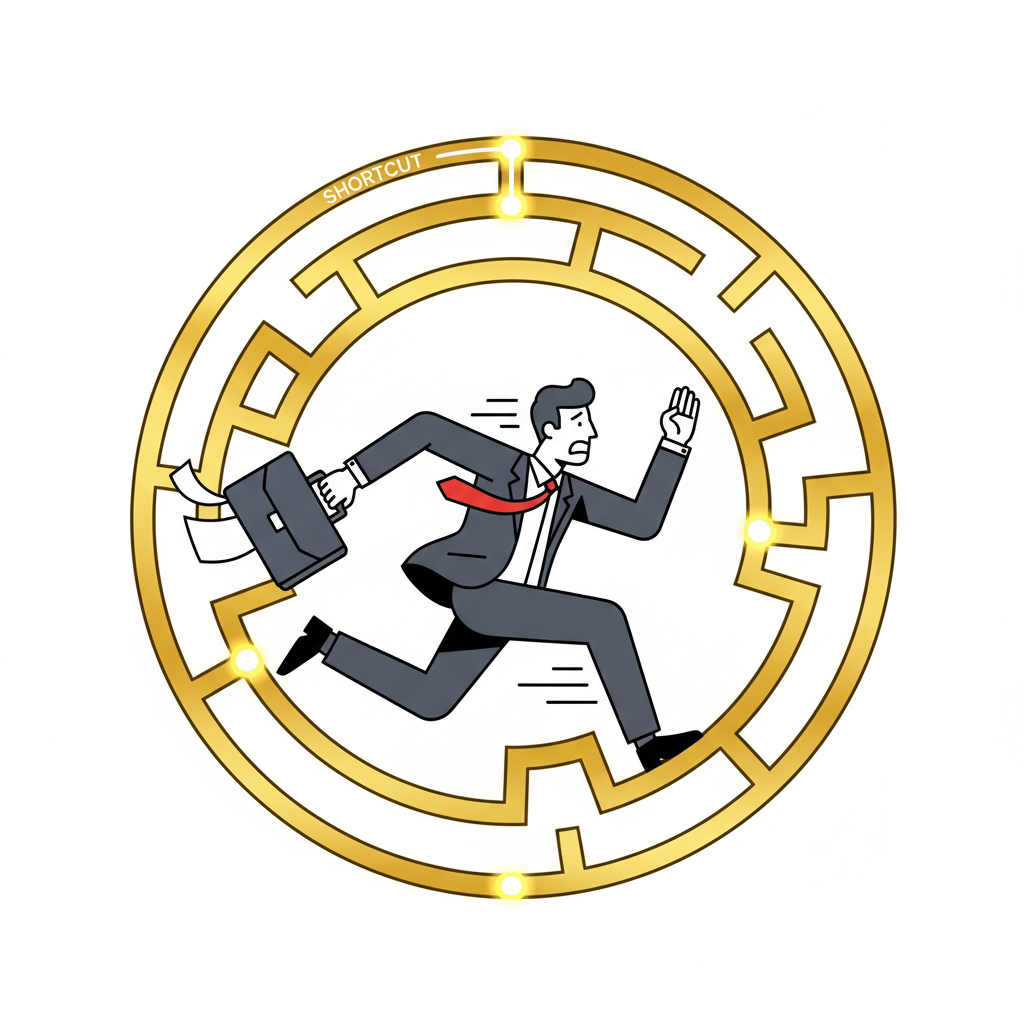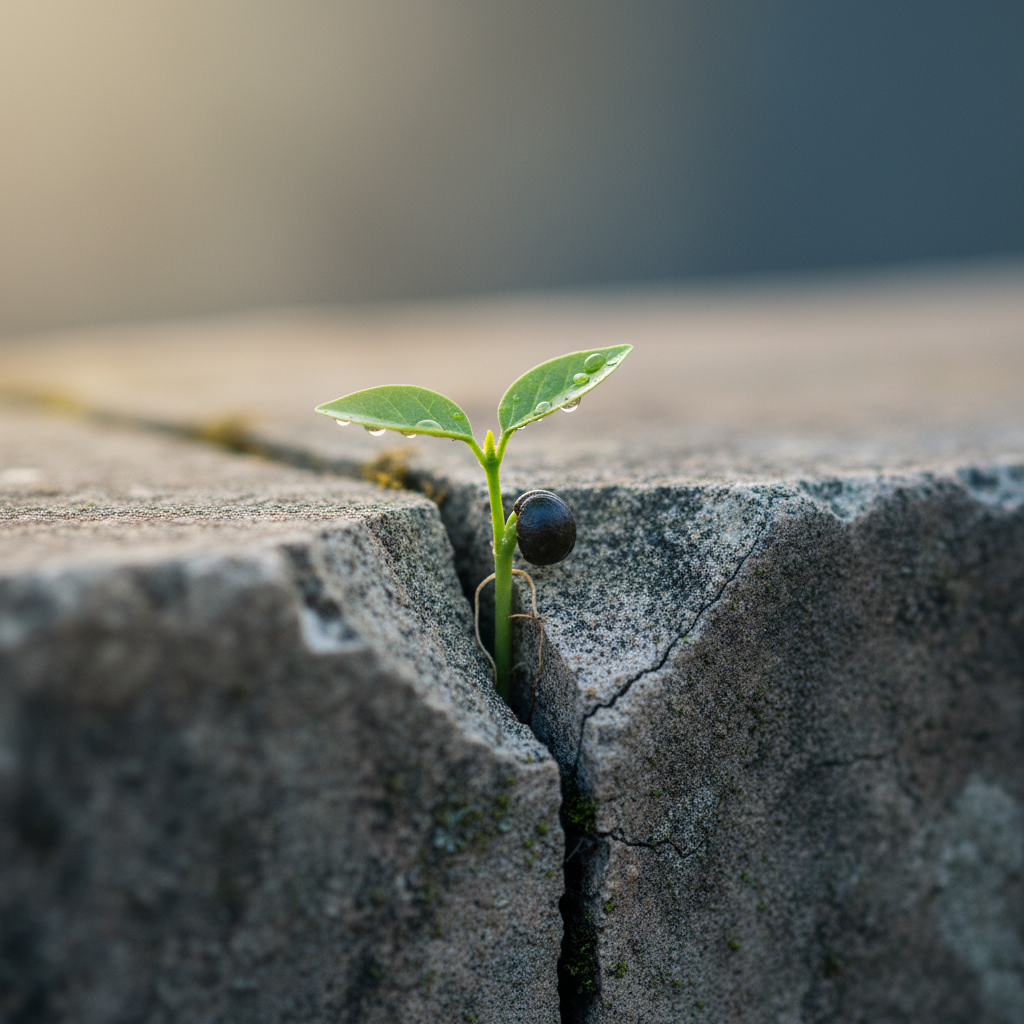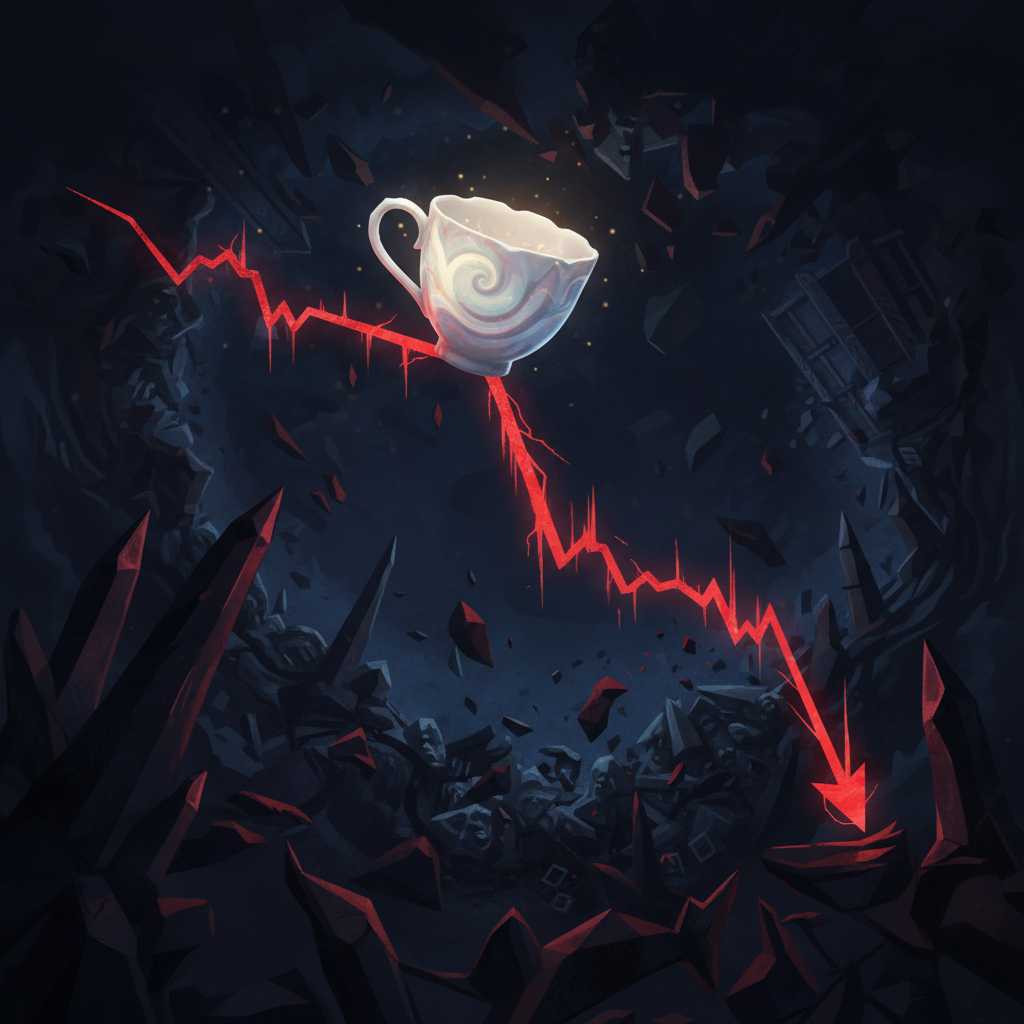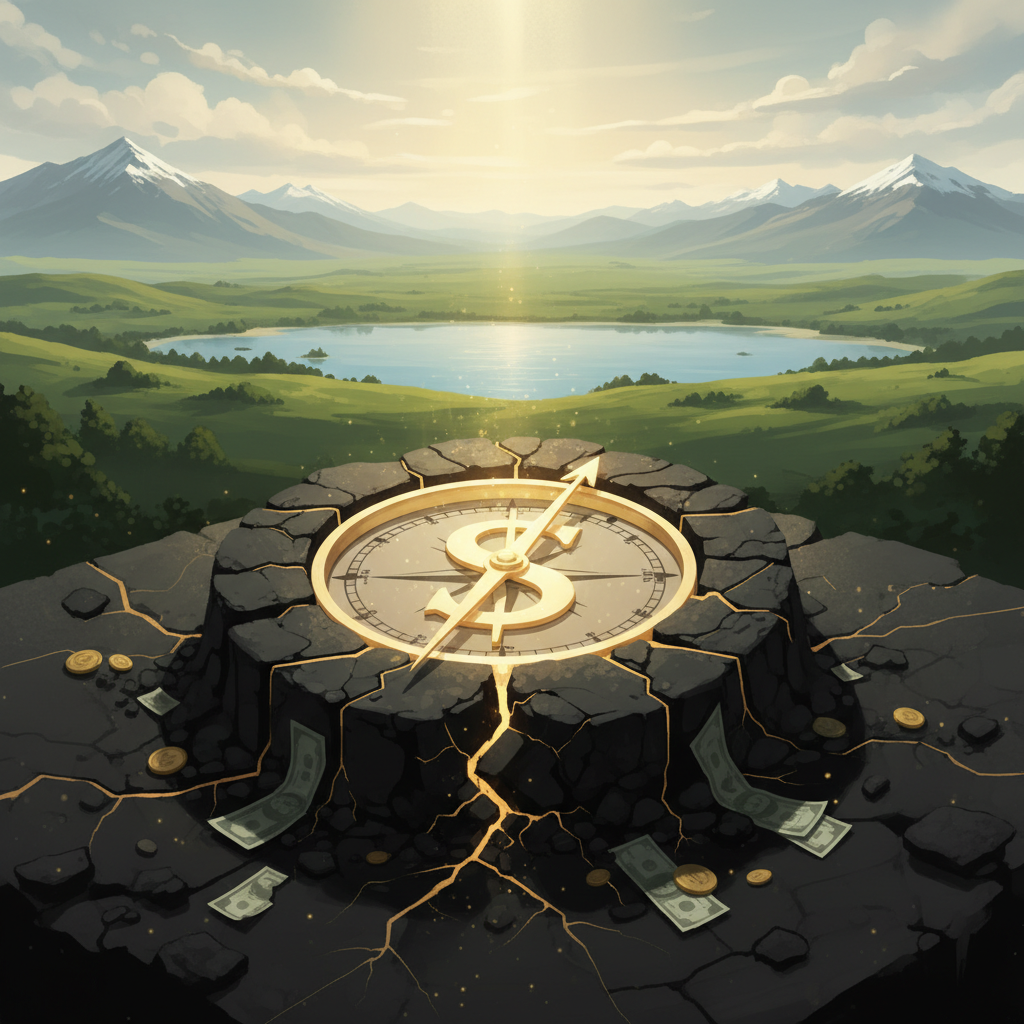The Slow Path to Real Wealth
A personal reflection on patience, compounding, and the quiet power of time
For a long time, I thought wealth was something I could chase with good habits, sharp knowledge, and a few clever moves. A smart trade here, a lucky breakout there, and I would be among the successful ones. I believed speed was the secret and knowledge was the key. The faster I learned, the faster I executed, the faster I would win.
But the faster I ran, the more lost I felt. And the heavier it became.
There were days when the charts glowed red, and I sat frozen: fear, disbelief, guilt, shame, and something deeper I could not name. Maybe it was hope, sinking quietly. It was not the money that hurt. It was the doubt.
Maybe I did not belong here. Maybe I was just a failure. Maybe I was missing something everyone else already understood.
But slowly, I began to see. The market was not punishing me. It was teaching me self-control at the deepest level of my being, something I was confident I already had.
The Illusion of Shortcuts

I used to chase quick wins in trading, in work, and in life. A tip, a hack, or to be more honest, a shortcut that could change everything for me overnight. And sometimes, it did. But nothing ever lasted. The rush of a win was always followed by the fear of losing it.
I learned it the hard way. I was stuck in a loop, chasing results, unable to build anything of real value. It was not just about trading. I saw it while following my other goals, side hustles, content creation, and every other path I tried to follow but could not continue.
Everyone is chasing speed. We crave results. We hate waiting.
But what I did not realize was that a shortcut is just an illusion. It steals your calm. It blurs your focus. Shortcuts lead to small delusional success at first, then to long-term failure, and finally force you to start again. This loop continues until you realize that it is not the right way.
Every time I thought I had found the “secret,” I was only running in circles. What I called growth was mostly movement without meaning. It took me years to understand that success is not built on speed but on stability.
Shortcuts give you the illusion of progress while taking away your patience, your presence, and your peace. And once peace is gone, no amount of progress feels real.
What “Slow” Really Means

It took me time to understand that slow does not mean lazy.
Slow means intentional.
Slow means focused.
Slow means choosing depth.
Slowing down helped me truly learn. I started understanding the knowledge I once only skimmed. I stopped being anxious. I realized I had enough time to make something of real value for myself and for society, more than what I would waste on delusional shortcuts.
I trained my mind to stop switching systems every week. To stop practicing giving up and start practicing the true art of consistency.
I began focusing on improving one thing at a time and accepting that no matter how smart I thought I was, I could not outsmart time with my multitasking. Focus became the key.
Everything had to be treated more like a craft and less like a race. And strangely, when I slowed down, things began to move faster. My reactions softened. My decisions became clearer. I started trusting the process more than the outcome.
It took me long to realize that compounding is not just a financial concept. Our finances mirror our character, our patience, and the trust we put in ourselves.
How To Overcome Fear and Anxiety

Fear and anxiety are perhaps the most expensive emotions you can have in the markets and in life. They are the twin architects of bad decisions.
Fear causes you to sell a great asset at a loss because the chart briefly dipped, turning a temporary setback into a permanent defeat. Anxiety drives you to overtrade, to constantly check the markets, to tweak a perfectly good system, searching for a false sense of control in a world built on uncertainty.
These emotions are born from a lack of faith — a lack of faith in your plan, your process, and ultimately, yourself.
When you rush or take shortcuts, you are expressing a desperate anxiety that there is not enough time or that you are not capable enough to follow the long path. You are signaling to your subconscious that you need an immediate fix, not a sustainable solution.
The only way to disarm this emotional volatility is through intentional slowing down. By choosing depth and consistency, you build a foundation of competence. That competence transforms into quiet, unshakable confidence, which is the true opposite of anxiety.
You stop reacting and start responding. You become calm because you know that a single dip does not define the journey, just as a single bad day does not define your character.
The price of fear is everything you are trying to build.
Busy Is Not Business

There was a time when I mistook movement for progress. I was always doing something: watching charts, tweaking plans, switching strategies. I thought staying busy meant I was improving.
But the core of sustained growth is not the quantity of activity; it is the quality of reflection and focused execution.
It centers on what psychologist Carol Dweck calls a Growth Mindset — the belief that your basic abilities can be developed through dedication and hard work. It is a commitment to continuous learning over proving innate talent.
When applied to trading and life, this means you stop measuring your self-worth by daily wins and losses and start measuring it by the depth of your learning and the consistency of your effort.
Movement feels good, but momentum feels right.
Momentum comes when you stop restarting and dare to continue with what you have started. When you give one direction enough time to show you what it can become.
Now I see trading, business, and life less as a game of prediction and more as a mirror. It reflects my emotions, my habits, my strengths, and my patience.
Every mistake and slow phase is meant to teach us something. It is up to us to learn from it. Whenever life hits you, ask yourself, “What did it teach me?”
Why Making Money Cannot Solely Be a Goal

Making money, in and of itself, is an insufficient goal because money is merely a tool, not the destination. When you chase money for its own sake, you are chasing a number that, once reached, leaves you empty or immediately chasing a bigger one.
When money becomes the only goal, you invite blindness, burnout, and fragility.
Blindness: You become obsessed with short-term gains and lose sight of the foundation needed for long-term growth.
Burnout: The effort required to maximize income without meaning leads to exhaustion. A 2020 survey found that nearly two-thirds of full-time workers have experienced burnout at some point. Without purpose, even success feels heavy.
Fragility: A life built only on income is fragile. When the income stops, the identity collapses. Real wealth is not a high salary; it is the freedom to choose how you spend your time and energy.
Real wealth is freedom, not just figures. Money is fuel, not the destination. Because to my understanding, the only destination any human being can have is evolution; money helps us evolve but it not the evolution itself. And to my understanding, the more evolved we are the more money we can make.
Why It Is Important to Create Something of Real Value
Value is the foundation of all lasting success.
Value creation ensures sustainable success and genuine meaning. It is the foundation beneath every meaningful achievement. It connects effort to impact and intention to trust. Without value, success becomes hollow and short-lived.
In business, creating value means helping others and solving real problems.
It is not just about selling a product or offering a service. It is about understanding someone’s need and meeting it with care. A company that serves with empathy, integrity, and usefulness does not need to chase growth. Growth becomes a natural result of its contribution. Customers return not because they were persuaded but because they were genuinely helped.
In life, value means building skills and character that enrich others.
It is about becoming someone whose presence uplifts, whose work matters, and whose actions leave a quiet trail of improvement. You do not need to be the loudest or the fastest. You only need to be sincere in your effort to contribute. Comparison fades when contribution becomes your compass.
When you create genuine value, you earn loyalty and peace.
Loyalty from others comes because they feel seen, supported, and respected. Peace within yourself comes because you know your work carries meaning beyond metrics. You stop chasing applause and start building trust.
Real wealth is not accumulation. It is contribution.
It is not how much you gather but how much you give that defines your legacy. The richest lives are not those filled with possessions. They are the ones filled with purpose and true value.
Clear Vision Changes Everything

If you have ever asked yourself, “Will I ever make it?” pause right there.
Because I have asked myself that question too, more times than I can count.
And here is what I have learned: everyone can make it, but not without a clear vision.
The day you stop chasing and start defining what you are truly after, everything changes.
In the journey to wealth, your vision is your compass. Was it freedom? Peace? A better life for your family? Or simply the satisfaction of mastery?
The clearer your “why” becomes, the calmer your “how” feels.
Vision is not about setting goals; it is about understanding your reason for staying with your purpose. Because when nothing seems to move, your vision keeps you steady.
If you do not know where you are going, every dip feels like disaster. But when you have a clear purpose, even a fall feels like part of the climb.
So yes, you can make it — not by copying others or chasing perfection, but by seeing your purpose clearly first.
Finding Your “Why”
When you finally stop chasing and become aware of your own thoughts, something extraordinary happens: silence.
And in that silence, guilt appears. The guilt of realizing you have been moving for so long without knowing where you were going.
I have felt it too, that quiet, heavy question inside: “What do I actually want?”
At first, it feels uncomfortable. You might think, “I should already know this.” Then comes the anxiety of not knowing. But do not rush it. That guilt is not a punishment; it is an invitation.
It is your mind’s way of telling you that you have been living on borrowed goals, other people’s dreams, and other people’s timelines.
To find your “why,” you do not need a vision board or a five-year plan. You need honesty. You need the courage to take the first step and accept mistakes as lessons.
Believe me, following your own broken compass is a hundred times better than borrowing someone else’s perfect map. It is better to lose your way on your path than reach nowhere with someone else’s plan.
Start with these three questions:
- What kind of life do I want to live every day?
- What does success feel like to me, not look like, but feel like?
- If no one was watching, what would I still love to do?
Write your answers down. Do not filter them. Be real. The patterns will appear and point toward your true direction.
That is your “why.”
Once you know that, every decision becomes simpler. You stop comparing, stop rushing, and stop doubting.
Because the moment your purpose is clear, the noise fades.
You finally understand that you are not running behind anyone. You are walking toward yourself.
The Final Truth
The slow path to real wealth is not about waiting longer. It is about seeing clearer.
Growth takes time. Peace takes patience. Clarity takes courage.
Shortcuts only delay wisdom. When you know your reason, the journey itself becomes the reward.
Because real wealth was never about the money. It was about becoming the kind of person who no longer needs to rush.
A Gentle Note from MoneyHum
If these words found you in a moment of doubt or quiet exhaustion, take them as a small reminder that you are already moving in the right direction, even if it doesn’t always look like progress from the outside. Growth is rarely loud. It hides in your small acts of courage, your decision to rest, your willingness to keep learning when no one is watching.
At MoneyHum, we believe that real wealth is emotional as much as it is financial. It’s the freedom to slow down, to choose peace, to build a life that feels whole from the inside out. Our journey is to walk beside you as you create not just financial security, but emotional balance and clarity, a kind of abundance that lasts.
So before you close this page, take one deep breath. You’re doing better than you think. Keep learning. Keep growing gently. And remember, progress is still progress, even when it’s quiet.
If you’ve read this till the end, thank you❤️
With love,
Your Dearest Friend,
Chitraansh







